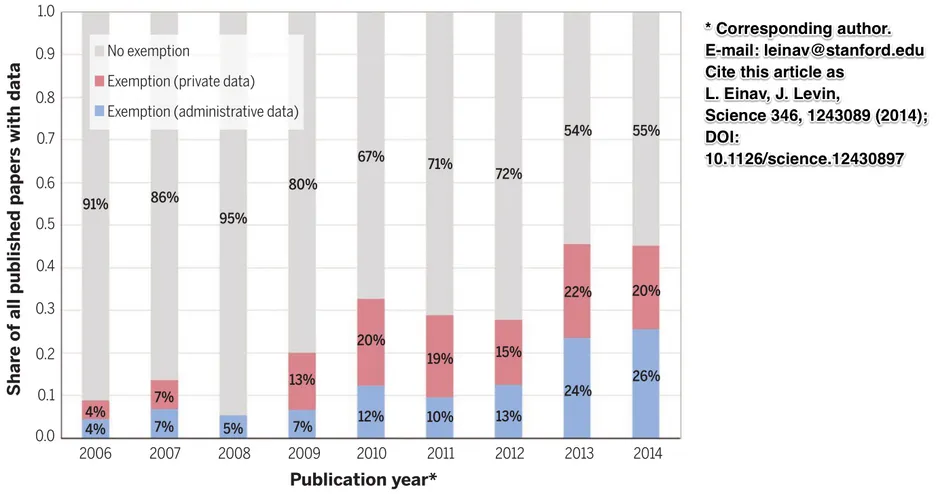Evidenzorientierte Entscheidungen auf der Grundlage von Big Data Analytics, virtuell (0000001981)

Die Nutzung von Big Data, also von großen, z.T. unstrukturierten Datensätzen aus verschiedensten Quellen, erlaubt es Unternehmen, durch die gewonnenen, umfassenden Erkenntnisse bessere Entscheidungen treffen, sowie besser steuern und kontrollieren zu können. Die betriebswirtschaftliche Lehrinnovation „Evidenzbasierte Entscheidungen auf der Grundlage von Big Data Analytics” soll Studierende über die Funktionsweise, die Einsatzmöglichkeiten und Herausforderungen von Big Data-Analysen informieren und sie in Form vonselbstgesteuertem wissenschaftlichen Lernen zum verantwortlichen Umgang mit Big Data-Analysen befähigen. Die Studierenden lernen, Standardtechnologien der Big Data-Analyse domänenspezifisch vornehmlich im Bereich Accounting, Auditing and Finance einzusetzen und Lösungsansätze für Fallstudien zu erarbeiten. Sie sollen somit für den Einsatz dieser Techniken im betrieblichen Umfeld und auch zur (Weiter-) Entwicklung neuer Geschäftsmodelle in diesem Bereich befähigt werden.
| Name (dt.) | Evidenzorientierte Entscheidungen auf der Grundlage von Big Data Analytics (EEBDA) |
|---|---|
| Name (en.) | Evidenzbasierte Entscheidungen auf der Grundlage von Big Data Analytics (EEBDA) |
| Organization | TUM School of Management, Full Professorship Financial Accounting; virtuelle Hochschule Bayern (vhb.org) |
| Credits | 6 ECTS |
| Module Level | BSc. |
| Duration | 1 semester |
| Frequency | Summer/winter semester |
| Schedule | week 17 to week 26 (flexible start, exam on June 28) |
| Further Information | Course Demo |
| Language | German / English (presumably winter 2019) |
| Total hours | 180 |
| Contact hours | 60 |
| Self-Study hours | 120 |
| Type of Assessment | written exam |
| Exams retake next semester | yes (2nd half of semester, [December/June]) |
| Prerequisites (recommended) | Succesful completion of the first three semesters is strongly adviced |
| Intended learning outcomes | After a successful participation, the students are able …
|
| Content |
The module will start with a virtual webinar, whereas students will get access to the learning platform, which contains the electronic learning contents in the form of interactive lecture notes and course-specific data sets. Other materials are video tutorials and data analysis tools, which help to acquire core competencies for big data analysis projects. In the accompanying case studies, the basic data processing involved in big data analysis are taught. For this purpose, a webinar explains these central steps in a comprehensible manner and motivates the students through immediate application and independent learning. For the case-study-specific evaluations, the students rely on R and have to evaluate various data sets using the methods described and graphically visualize their results. The case studies contain the following elements and will increase in difficulty during the semester, while each case study has a specific focus:
Regarding bullet point 4, additional online services are provided and students are encouraged to discuss ethical issues online. At the end of the semester, an outlook is given. This should enable the teachers to be able to set specific priorities in this rapidly developing field. Finally, a questionnaire-based evaluation will also be provided to measure the learning results in the context of big data analysis by a self-assessment.
|
| Teaching methods | First, there will be an introductory lecture using a virtual webinar. Succeeding extensive tutorials, educational videos, and interviews will be provided to motivate the participants to independently access and practice the learning materials. The course will be supplemented by exercises supervised by teaching assistants. |
| Media | Educational Tutorials (lecture notes), interview videos, educational videos, literature |
| Module responsible | Florian Schramm |
| Lecturer | Prof. Dr. Jürgen Ernstberger |
Big Data Analytics verändert zahlreiche Entscheidungsprozesse in Wirtschaft, Staat und Gesellschaft. Beispiele dafür sind:
Dieser Trend erfordert in der Hochschulausbildung eine frühzeitige Vermittlung der IT-Grundkenntnisse und -Kompetenzen, die für den Umgang mit den Herausforderungen dieser Big-Data-Datensätze notwendig sind.
Im Bereich der Wirtschaftswissenschaften bietet sic die Möglichkeit bei Entscheidungen auf unterstützende Daten zurückzugreifen. Dieses Evidenzbasierte Entscheiden hat seinen Ursprung in der Evidenzbasierten Medizin und setzt sich in immer mehr wissenschaftlichen Disziplinen durch:
